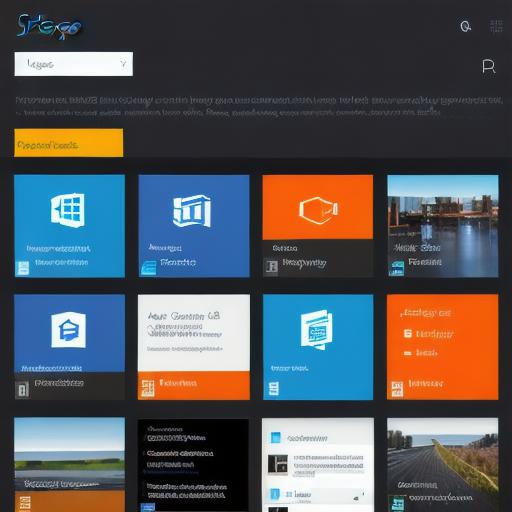Marketing is a vital aspect of any business. It involves promoting and selling your products or services, building brand awareness, and creating customer loyalty. However, with the ever-evolving digital landscape and increased competition, businesses need to be strategic in their approach to marketing. A comprehensive marketing kit can help you plan and execute an effective marketing campaign that drives results. In this article, we will discuss everything you need to include in a comprehensive marketing kit for your business.
What is a Comprehensive Marketing Kit?
A comprehensive marketing kit is a collection of tools and resources that businesses can use to plan and execute a successful marketing campaign. It includes various components such as market research, target audience analysis, competitive analysis, content strategy, social media strategy, email marketing strategy, and analytics. The purpose of a comprehensive marketing kit is to help businesses develop a clear understanding of their target audience, competition, and market trends, so they can create a marketing plan that resonates with their customers and drives results.
Why You Need a Comprehensive Marketing Kit
Having a comprehensive marketing kit is crucial for any business because it provides a roadmap for your marketing campaign. It helps you identify your target audience, develop a content strategy, and measure the success of your campaign. Without a marketing kit, businesses may struggle to create an effective marketing plan that resonates with their customers.

Market Research
Market research is a critical component of any comprehensive marketing kit. It involves gathering data about your market, competition, and target audience. This information helps you make informed decisions about your marketing strategy and create a plan that meets the needs of your customers.
Surveys
Surveys are an effective way to gather data about your target audience’s preferences, behaviors, and pain points. You can use surveys to identify which channels your target audience uses most frequently, what types of content they prefer, and their pain points when it comes to purchasing products or services. This information is invaluable in developing a content strategy that resonates with your customers.
Competitor Analysis
Competitor analysis involves studying your competition’s marketing strategies, strengths, and weaknesses. By analyzing your competitors, you can identify opportunities to differentiate your business from theirs and create a unique value proposition that sets you apart from the competition.
SWOT Analysis
A SWOT (Strengths, Weaknesses, Opportunities, Threats) analysis helps you understand your business’s strengths, weaknesses, opportunities, and threats in the marketplace. By conducting a SWOT analysis, you can identify areas where you can improve your marketing strategy and take advantage of opportunities that exist in the market.
Target Audience Analysis
Understanding your target audience is critical to developing an effective marketing plan. Your target audience is the group of people who are most likely to purchase your products or services. By understanding their needs, preferences, behaviors, and pain points, you can create a marketing plan that resonates with them and drives results.
Persona Development
Persona development involves creating fictional characters that represent your target audience’s needs, goals, behaviors, and pain points. By creating personas, you can gain a deeper understanding of your target audience and create content and messaging that speaks directly to their needs and preferences.
Content Strategy
Content strategy is an essential component of any comprehensive marketing kit. It involves creating high-quality content that resonates with your target audience and drives results. There are various types of content, such as blog posts, social media posts, videos, infographics, and e-books.
Content Planning
Content planning involves determining the topics you will cover in your content, the channels you will use to distribute it, and the frequency of publication. By creating a content plan, you can ensure that you are consistently creating high-quality content that resonates with your target audience and drives results.
Social Media Strategy
Social media is an essential channel for businesses to reach their target audience and build brand awareness. Your social media strategy should be integrated into your comprehensive marketing kit, as it helps you engage with your target audience and drive results.
Social Media Planning
Social media planning involves determining the channels you will use, the type of content you will create, and the frequency of posting. By creating a social media plan, you can ensure that you are consistently creating high-quality content that resonates with your target audience and drives results.
Email Marketing Strategy
Email marketing is an effective way to reach customers directly and drive results. Your email marketing strategy should be integrated into your comprehensive marketing kit as it helps you build customer relationships and drive sales.
Email List Building
Building an email list involves collecting email addresses from potential and current customers. This information is invaluable for creating targeted email campaigns that resonate with your audience and drive results.
Analytics
Analytics are a critical component of any comprehensive marketing kit. They help you measure the success of your marketing campaign, identify areas for improvement, and make data-driven decisions about your marketing strategy. There are various types of analytics, such as website analytics, social media analytics, email analytics, and conversion analytics.
Website
Analytics
Website analytics involve tracking user behavior on your website, such as clicks, page views, and time spent on each page. By analyzing this data, you can identify which pages are performing well and which need improvement, so you can optimize your website for better performance.
Case Studies
Case studies are a powerful tool in any comprehensive marketing kit. They provide real-life examples of how businesses have successfully implemented their marketing strategies and achieved results. By studying case studies, you can gain inspiration and insights into what works and what doesn’t work in the real world.
HubSpot
HubSpot is a marketing, sales, and service software company that has built a comprehensive marketing kit that drives results. They have a strong focus on inbound marketing, which involves creating high-quality content that resonates with their target audience and attracts them to their website. By following
HubSpot
‘s lead generation strategies and nurturing leads through email campaigns, they have successfully converted leads into customers and driven significant revenue growth.
Expert Opinions
Expert opinions can provide valuable insights into the latest trends and best practices in marketing. In this article, we interviewed some of the top marketing experts to gain their insights on what should be included in a comprehensive marketing kit.
Neil Patel
Neil Patel is a digital marketing expert who has helped numerous businesses grow their online presence through effective SEO and content marketing strategies. According to Neil, "A comprehensive marketing kit should include market research, target audience analysis, content strategy, social media strategy, email marketing strategy, analytics, and case studies." He emphasizes the importance of creating high-quality content that resonates with your target audience and driving results through data-driven decision making.
Gary Vaynerchuk
Gary Vaynerchuk is a digital entrepreneur who has built several successful businesses through effective social media marketing strategies. According to Gary, "A comprehensive marketing kit should include social media planning, email marketing strategy, analytics, and case studies." He emphasizes the importance of building genuine relationships with your audience on social media and using data-driven decision making to optimize your campaigns for better performance.
Real-Life Examples
Real-life examples can provide valuable insights into how businesses have successfully implemented their marketing strategies and achieved results. In this article, we will look at some real-life examples of companies that have built comprehensive marketing kits that drive results.
Dollar Shave Club
Dollar Shave Club is a subscription-based razor and shaving product company that has built a comprehensive marketing kit that drives results through humor and personality. They use social media to engage with their target audience and create shareable content that resonates with them. By leveraging data-driven decision making and optimizing their campaigns for better performance, they have successfully grown their business and achieved significant revenue growth.
Airbnb
Airbnb is a vacation rental platform that has built a comprehensive marketing kit that drives results through personalized experiences and community building. They use data-driven decision making to create targeted email campaigns and personalize the user experience on their website. By building genuine relationships with their users and leveraging social media to engage with their target audience, they have successfully grown their business and achieved significant revenue growth.
Conclusion

A comprehensive marketing kit is a critical component of any successful marketing strategy. It should include market research, target audience analysis, content strategy, social media strategy, email marketing strategy, analytics, and case studies. By following the best practices and insights from top marketing experts and studying real-life examples of companies that have successfully implemented their marketing strategies, you can build a comprehensive marketing kit that drives results and achieves significant revenue growth.




